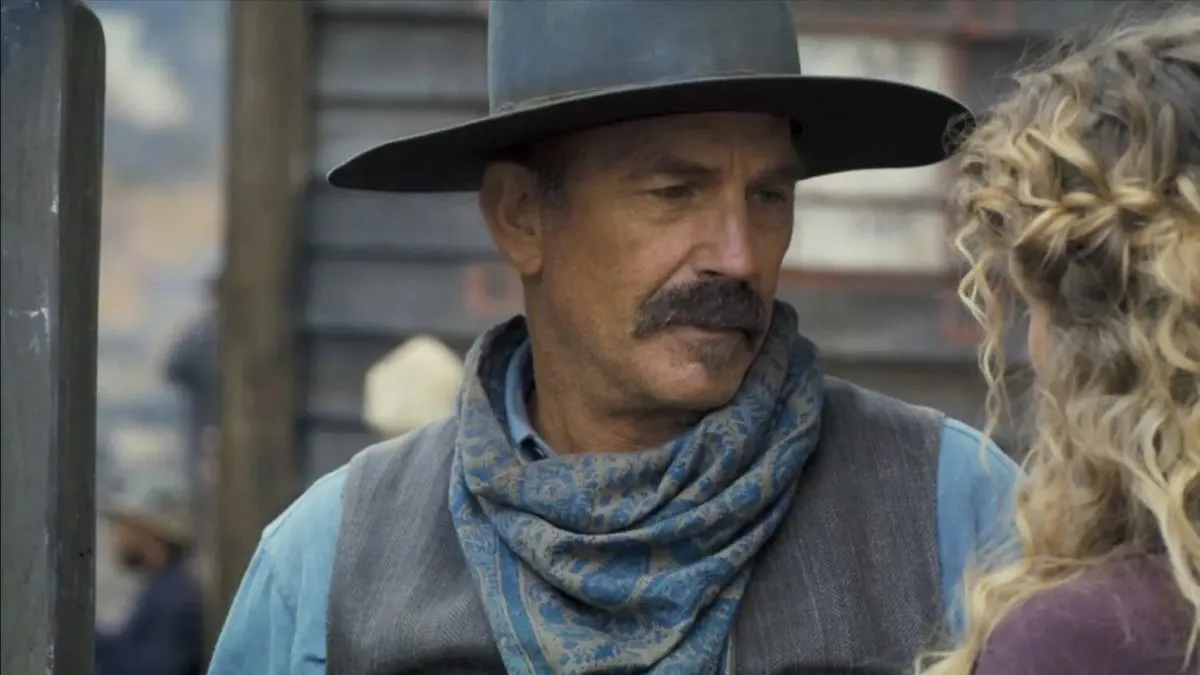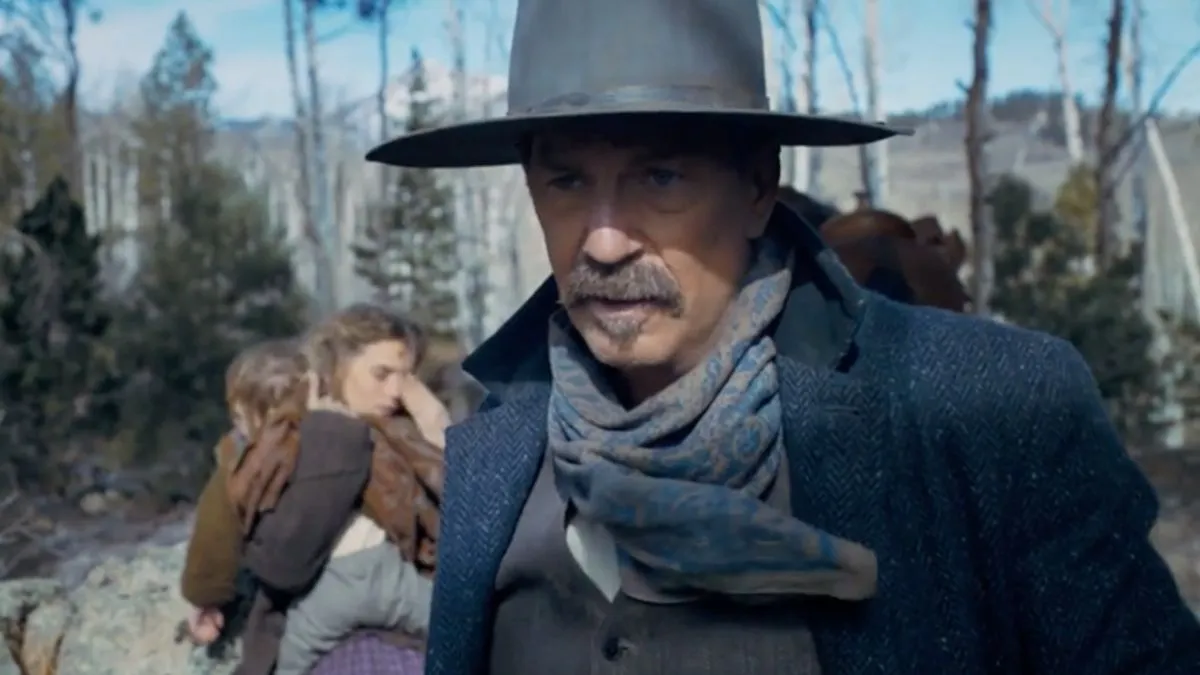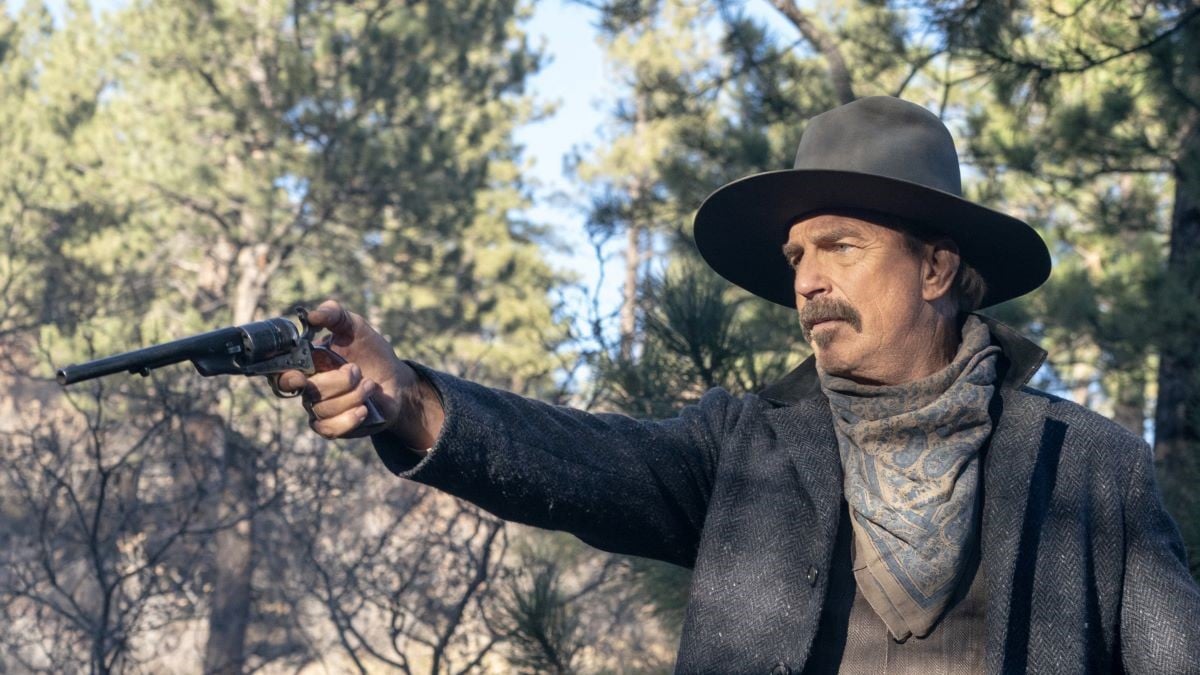First and foremost, it must be said that Kevin Costner‘s mark on the film and television industry has long since proved to be prominent and worthy of our respect; from Dances with Wolves to Yellowstone, his myriad of artistic contributions to the world are nothing short of tremendous.
It, therefore, stands to reason that Costner is deserving of grace whenever he slips up in this department, even if the scope of such a misstep is that of a three-hour-long film that has not only threatened to kick off a tetralogy of these Western epics, but made good on that threat, too (Chapter 2 is due in August, Chapter 3 began principal photography back in May, and Chapter 4 is in development). The good news is that maybe the rest won’t be as bad as this one; the bad news is that maybe they will, and by golly, that would be a mighty effective way to test that aforementioned grace.
Indeed, Horizon: An American Saga – Chapter 1 couldn’t have been a shakier start to Costner’s new vanity venture; a handful of technical aspects and performances offer a creative calorie or two, but they’re ultimately helpless against the twangy incoherence and direly manufactured pathos of Horizon, and that’s not even getting into the very peculiar, very questionable decision to tell this exact story as it is.
Starring, co-written, directed, and produced by Costner, Horizon: An American Saga – Chapter 1 chronicles the plights of a number of different characters shuffling in and around the Civil War era of American history, all of which take place against the backdrop of an expanding American West, and all of whom have varying hands in that exact expansion.

Let’s start from the top; Horizon‘s first mistake (outside of one other thing, which we’ll come back to later) was being a film series rather than a television series. There’s a sense that all of these characters were thrown into the action long before their stories — and therefore most of the film’s drama — became or would become palpably relevant. We’re subsequently tasked with keeping track of an unreasonable plethora of characters, but Horizon offers up little to no reason to invest ourselves in them; no sooner do they show up, encounter other people, and say their piece do we immediately move on to another storyline, and then another, and then another, at which point they all amalgamate into narrative deadweights on account of breakneck, entirely mediocre characterization.
That domino then falls into the next one; the moments we do spend with the characters are boring, garbled, and without an ounce of any real, comprehensible tension. The film is checkered with brass flourishes throughout in an attempt to resemble emotional awe and depth without actually coming anywhere near those things, and the dizzying suddenness of the character dynamics quickly thicken into an unmappable mess; one may even wonder if Horizon was working with three different scripts, all of which had their pages thrown up in the air, with only the ones landing right-side-up making the final shooting cut.
Let’s give Horizon a break for a second, though; the sound design is genuinely excellent. There’s a punchiness to every gunshot and beating hoof, and an enthusiastic, auditory ticklishness to every jingling spur and running river. Indeed, if we’re going to be watching a whole lot of nothing going on in the American West, it might as well sound nice.
The Sykes siblings, played by Jon Beavers and Stranger Things‘ Jamie Campbell Bower, are also performed divertingly enough to earn a shout or two, even if the material lets them down with some of the murkiest harshness imaginable. Bower plays the giddily nasty, jaggedly temperamental, and thoroughly punchable Caleb with a precision that we’ve all come to expect from him after his turn as Vecna, while Beavers’ bassy, intimidating screen presence almost makes up for the directionless script precisely because the performance is rooted in measured-yet-carnal anti-subtlety. Tragically, they’re asterisks in the face of the other two hours and fifty minutes we spend without them, but the fact that they made something work at all here is starkly impressive.

And with that, we’re back into the trenches. but what else is there to say that isn’t mostly summed up by its more technical storytelling failings? Mostly every film finds itself dead in the water (in the ways that matter) when the script is bad, and with a three-hour runtime full of countless hurried storylines that hardly deserve to be called storylines (plus the resulting uphill climb that the film’s confirmed sequels will be tasked with now), how many other boxes can Horizon: An American Saga – Chapter 1 tick on the faceplant list?
Perhaps — and this is in no way questioning whatever conscience Costner utilized in both conceiving and bringing this project to life — there’s something to be said about who Horizon is attempting to prop up as protagonists, and who audiences will generally be encouraged to regard as the antagonists as a result. That’s not to say Horizon is black-and-white about the story it’s telling, but if you’re going to tell a story that quite heavily involves the conflict between settlers and the Apache, you’d best make sure that you’ve read the room before identifying your approach, and that’s not even considering how severely that approach might get muddled if its execution is sloppy.
In saying all of this, it’s no bold criticism to suggest that Horizon is maybe lacking on one or more of these fronts, which may in turn butcher whatever value could hypothetically be extrapolated from this story. Worst case scenario, it could be taken as a film made in bad faith. This, ladies and gentlemen, is the real first mistake I alluded to earlier.
All in all, Horizon: An American Saga – Chapter 1 is best chalked up as a long, loud, lame load of utter misfortune. It’s all quite heartbreaking, given Costner’s prestige and past accomplishments, but worse than the film’s failure is the sense that it didn’t—and, retroactively, does not—recognize the foundational shortcomings that ultimately ushered that failure. We’ll see how chapters two through four go, but right out of the gate, Horizon looks dangerously similar to a house of cards in a dusty hurricane.











Published: Jun 29, 2024 01:19 pm